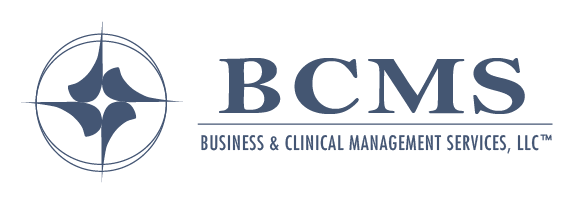During this uncertain time, Business & Clinical Management Services (BCMS) is here to support private physical therapy practices during COVID-19.
The Department of Health and Human Services
The Department of Health and Human Services has designated them members of the Essential Critical Infrastructure Workforce (https://www.cisa.gov/publication/guidance-essential-critical-infrastructure-workforce). We feel it is our professional duty to share information regarding the COVID 19 pandemic that can be used to flatten the curve and protect healthcare workers, their patients, families and practices.
The CDC has published, and updates regularly, recommendations for stopping the spread of COVID 19 and guidance for appropriate protective steps. You can find the most recent updates and advice at: https://www.cdc.gov/covid-19
Basic Prevention Guidelines:
Basic prevention guidelines for stopping the spread include the following:
- Practice Respiratory etiquette: Cover coughs and sneezes with a tissue, then throw it in the trash can. If you do not have a tissue, cough or sneeze into your bent elbow.
- Practice hand hygiene. Wash hands often with soap and water for at least 20 seconds; especially after going to the bathroom; before eating; after blowing your nose, coughing or sneezing. If soap and water are not readily available, use an alcohol-based hand sanitizer with 60% alcohol or greater.
- Take environmental health action. Routinely clean frequently touched surfaces and objects like cellphones, keyboards, and doorknobs.
- Observe social distancing.
Daily or Per Visit Assessments
Daily or per visit assessments of exposure or infection status for both the provider and the patient are critically important. Some questions that should be asked are:
- Have you traveled outside of this immediate area (local town/city), including but not limited to countries and states that have been classified as ‘high risk’, in the past 30 days?
- Have you been in close contact or live with someone who has traveled outside of this immediate area (local town/city), including but not limited to countries and states that have been classified as ‘high risk’, in the past 30 days?
- Have you had or have you been in close contact or live with someone who has had any of the following symptoms in the past 14 days:
- Fever over 100.4°?
- Persistent cough?
- Shortness of breath?
- Diminished sense of smell and/or taste?
A helpful resource as you continue to treat patients can be found here: Coronavirus/COVID-19: – General Considerations for Physical Therapy Private Practices
E-Visits and Telehealth
E-visits and telehealth visits are options that allow for continued patient care while complying with local or state mandates for social distancing, self-quarantining, isolation and ‘stay at home’ orders. CMS, at this time, only permits E-visits for Part B therapy providers, but many commercial payers, workers’ compensation carriers and Medicare Advantage payers have given the green light for therapy providers to provide telehealth services as long as it is not prohibited by state laws, including state practice acts. BCMS has a plethora of resources available regarding the billing, coding and documentation of such visits. Please go to the resource tab on our Home Page or contact us at [email protected] for more information.
Families First Coronavirus Response Act (FFCRA)
The Families First Coronavirus Response Act (FFCRA) was passed on 3/18/2020 and will be effective on April 1, 2020 through December 31, 2020 for all employers with under 500 employees.
The FFCRA is new legislation designed to protect employees and provide benefits to those impacted by the COVID 19 pandemic. Key points are summarized below.
- Includes two types paid leave based on specified criteria
- Emergency Paid Sick Leave (up to 80 hours paid by employer)
- Employee unable to work due to quarantine/experiencing symptoms (@100% regular pay rate) OR employee unable to work because of bona fide need to care for an individual subject to quarantine (@ 66.7% regular pay rate)
- These do not stack meaning there are 80 hours of total leave in this category. Employees cannot take 80 hours of leave for themselves at 100% and then take an additional 80 hours of leave for others at 66.7%.
- Public Health Emergency Leave (up to 10 additional weeks paid by employer)
- Employee unable to work because of a bona fide need to care for a child (under 18) whose school or childcare provider is closed or unavailable due to COVID 19 (@ 66.7% regular pay rate)
- Specifies that leave does not carry over into 2021. Employees are not entitled to reimbursement for unused FFCRA leave upon any separation of employment (layoff, quit, termination, etc.).
- States that tax relief for businesses will be based on amounts paid to employees under the FFCRA. Department of Treasury has not released this process. It is wise to document leave under FFCRA similar to all other PTO/sick leave you currently provide.
- Mentions a possible exception for employers under 50 employees if the FFCRA jeopardizes the viability of the business (criteria and process for requesting this exception are currently undefined)
- Emergency Paid Sick Leave (up to 80 hours paid by employer)
Mandates that employers will be required to post a notice of FFCRA requirements in a conspicuous place. Click here for the required poster.
FFCRA Effective Date:
At this time, it is important to be aware that this legislation has passed and is in the process of being implemented for an effective date of April 1, 2020. All employees who have been with the company at least 30 days and who are still employed with the company are eligible (likely including furloughed employees).
The DOL has published three documents to help employers and employees understand the FFCRA.
FFCRA Employer Paid Leave Requirements
FFCRA Employee Paid Leave Rights
BCMS is a compliance consulting firm for outpatient physical therapy practices. For more information on our service, click here.
